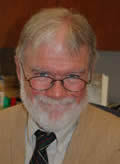
The quaint word “fortnight” had seldom been heard in America before the U.S. Conference of Catholic Bishops (USCCB) adopted it for use in a campaign for religious liberty. A principal concern of the USCCB’s “Fortnight for Freedom” is, of course, a federal law that could require conscientious private employers (most notably Catholic ones) to support services (most notably contraceptive and abortifacient ones) morally repugnant to them.
Whether or not that law is eviscerated, as it may soon be, by a Supreme Court decision, the Fortnight for Freedom anticipates this year’s Independence Day with a uniquely blended celebration of civil liberty and Christian martyrdom. The feasts of Saints Thomas More, John Fisher, John the Baptist, Peter, Paul and the First Martyrs of the Church of Rome all fall in those two weeks prior to the Fourth of July, commemorating the legal executions of men and women whose obedience to the Gospel was inconvenient for established authority.
Whether by episcopal intention or chronological accident, the Fortnight celebration also anticipates the nation’s general election, and America’s Catholic bishops have been criticized by some and praised by others for appearing to rebuke a vulnerable incumbent president and appearing to endorse the party opposing him. Such criticism and praise will likely continue at a high decibel level long after November 6.
It would be a shame if all this noise were to discourage our recently emboldened bishops, because the Health and Human Services mandate is only one of the noticeable ways governmental authority requires the suppression of Christian conscience.
Leaving aside a couple of undeclared wars, here a few other things Christian taxpayers have recently been obliged by law to subsidize, regardless of what our consciences have to say about them: Drone missile strikes and the “collateral damage” they inflict on Pakastani and Afghan villagers; overseas assassinations carried out for the last two administrations on presidential whim; the injection of lethal quantities of sodium thiopetantal, pancuronium bromide and potassium chloride into the veins of condemned prisoners; the prison camp in Guantanamo; the torture of some suspected terrorists and the extradition of others to countries where torture is less fastidiously regulated than it is here.
I could go on, but we have yet to hear from our bishops on these matters, and I hope and pray that we will.
Last week, I was at the 2012 Catholic Media Conference in Indianapolis, where Philadelphia Archbishop Charles J. Chaput gave a keynote address that challenged us “to look honestly at the arc of Catholic history in our country.”
Despite the blessings of the American Catholic community’s transition from an unwelcome immigrant minority to an influential cultural force, Archbishop Chaput reminded us, “Two other things also happened. The Church in the United States became powerful and secure. And Catholics became less and less invested in the Church that their own parents and grandparents helped to build. I think it’s fair, in part, to blame Church leaders for a spirit of complacency and inertia, clericalism, even arrogance, and for operating off a model of the Church — often for well-intentioned reasons — rooted in the past and out of touch with reality. But there’s plenty of blame to go around. Too many ordinary Catholics have been greedy, losing themselves in America’s culture of consumerism and success. Too many have been complicit in the dullness — the acedia — that has seeped into Church life, and the cynicism and resentment that naturally follow it.”
The Fortnight for Freedom provides an excellent opportunity for bishops, along with ordinary Catholics like me, to resist that alienating culture a bit, to remember that, as much as we may love America, that love must always be provisional. The French poet and diplomat Paul Claudel observed something like this when he wrote: “Since her institution, the Catholic Church has never ceased at every point of the globe and every instant of her duration to have difficulties with every form of society and of the state, even of those which seemed to borrow from her their constituent principles. No government will find Christians in revolt, but, what is worse, it will find them profoundly indifferent. It feels a dull irritation on hearing that there is in a Christian soul something that does not belong to it, something which is not for it, and fundamentally escapes it. It feels that it is seen through, and that to the very depths of its provisory essence, it is not taken seriously. It feels that it is no longer sovereign, but a kind of steward or procurator, an overseer of material interests whose services are accepted with a resignation which it is not always difficult to mistake for scorn.”
Nothing in Archbishop Chaput’s remarks so much as hinted at scorn for the services of the American state, but his audience could hear in them an unmistakable declaration of independence. “We work best for religious freedom,” he said, “by first opening our hearts to God’s will instead of our own, and loving our country and our Church, and renewing the witness of the Church with the zeal and purity and obedience of our own lives. That freedom, that joy, no one can ever take from us.”
That is a conclusion worthy of fireworks, legal or illegal. Happy Independence Day.
Michael Garvey is Notre Dame’s assistant director of public relations. Email him at garvey.2@nd.edu.